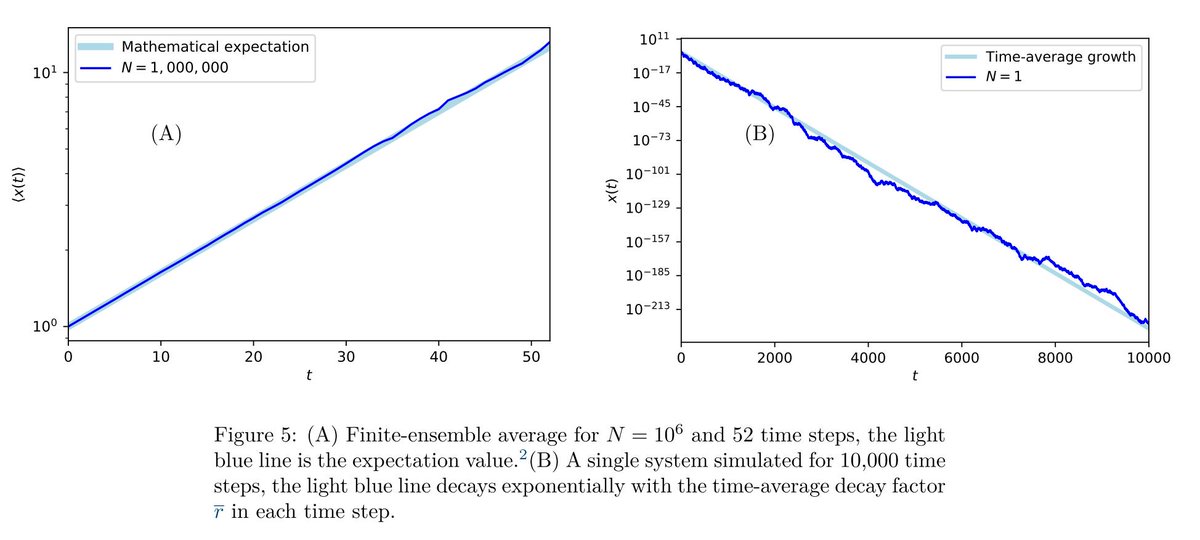Consider a coin flip bet: Heads you get 1.5 times your current wealth. Tails you get 0.6. Should you take it?
Expected value is 1/2*0.6 + 1/2*1.5 = 1.05 times your wealth. So take it right?
Not quite...
If you work it out, you get sqrt(0.6*1.5) ~= 0.95 times as much wealth at each time step.
(from ergodicityeconomics.com/lecture-notes/)

In other words, the classic "expected value" framework has a built-in hidden assumption about how to count the outcomes of multiple people.
There are entire books on this "aggregation" issue in welfare economics.
It comes down to the ethics of inequality.
And AI ethics research shouldn't use it uncritically either.
aeon.co/amp/ideas/how-…

